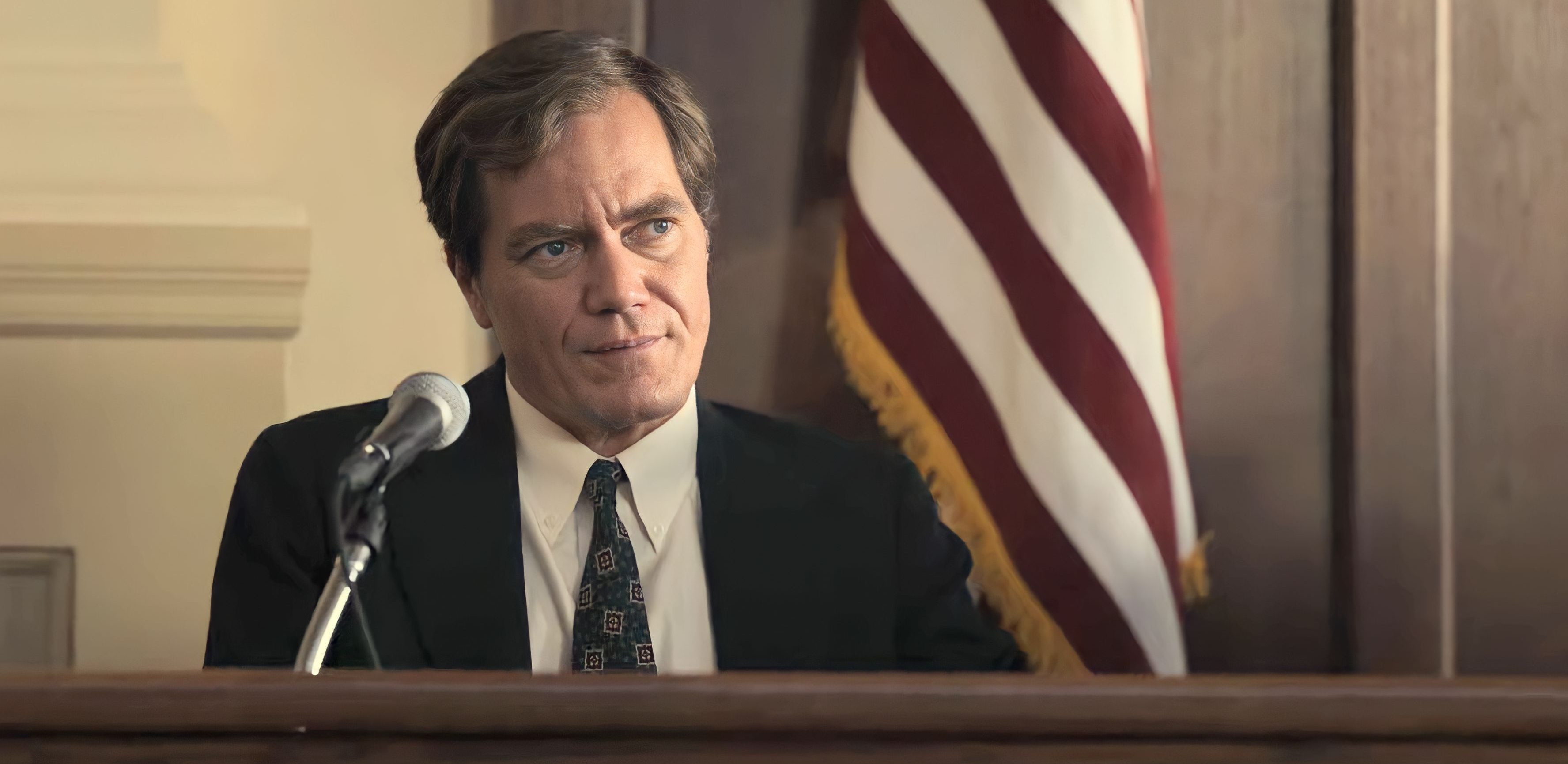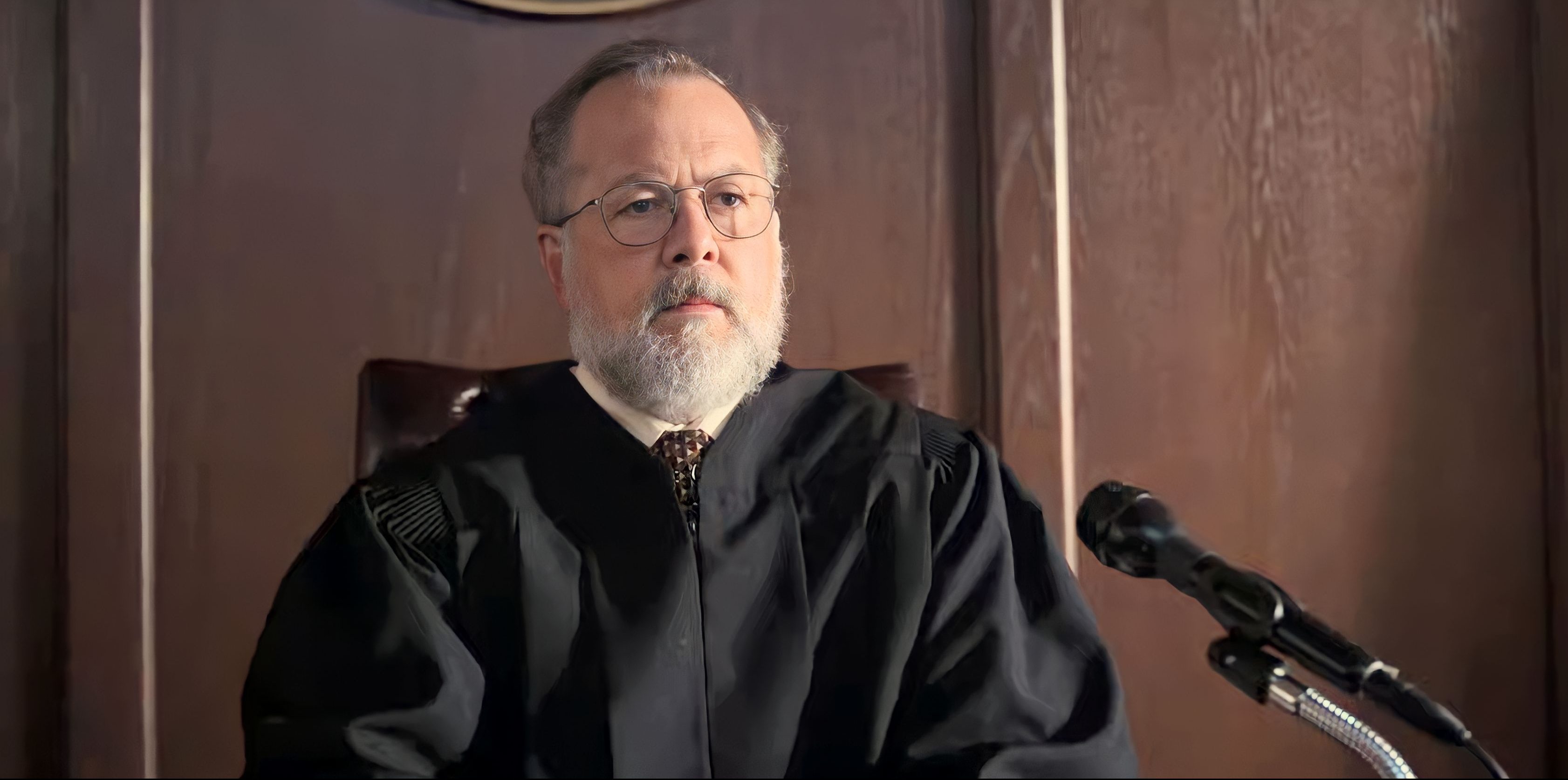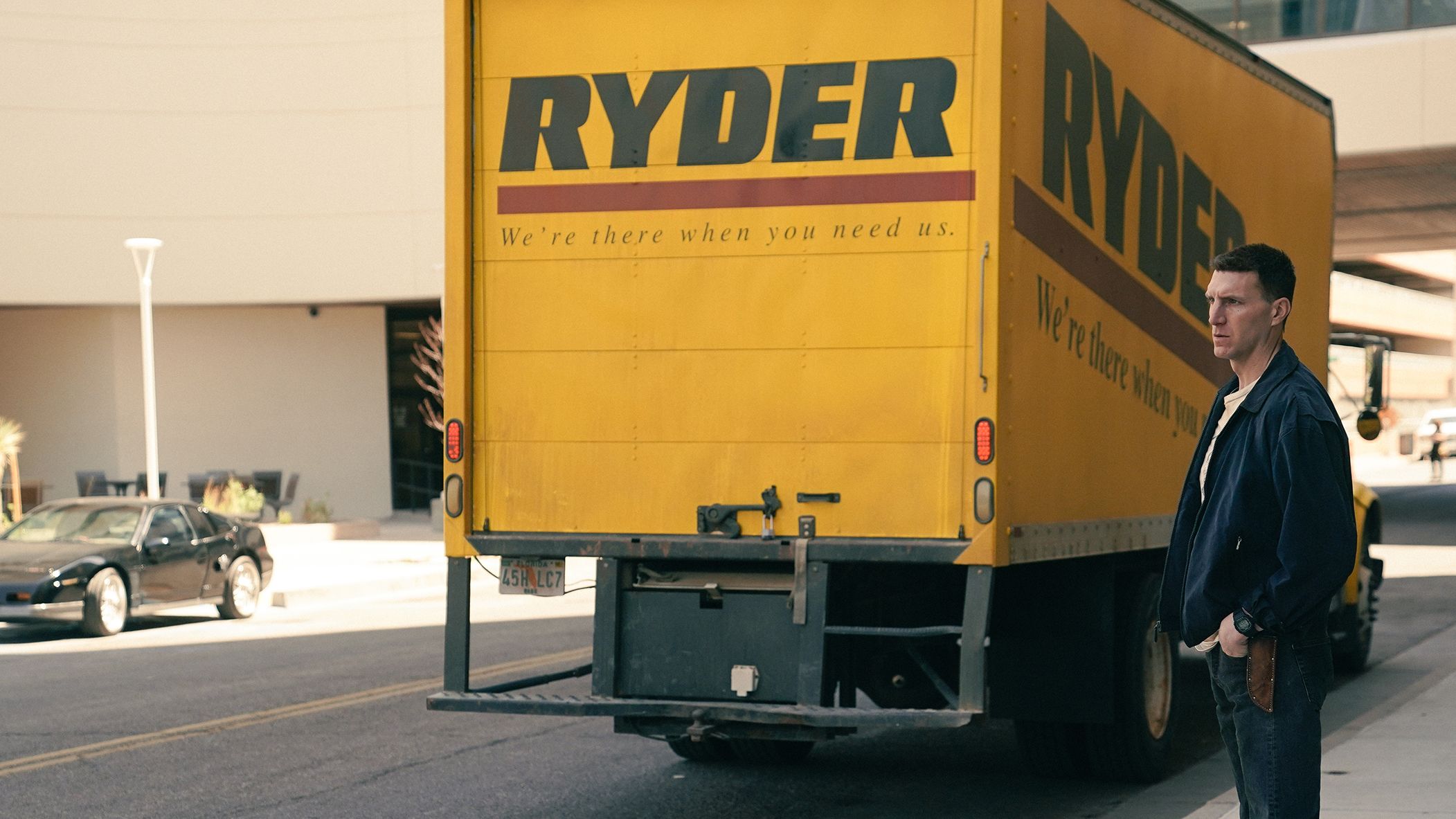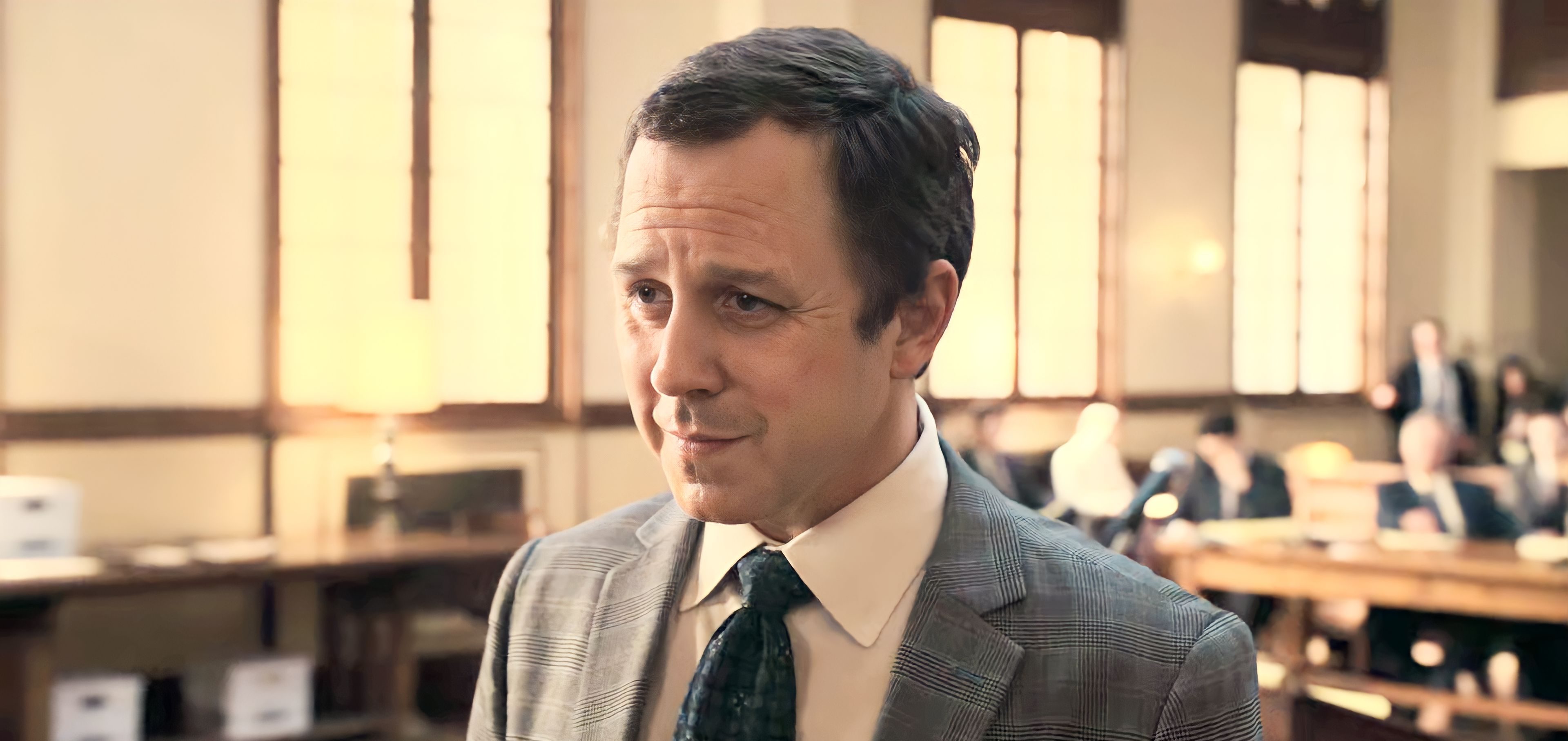The fifth and final episode of Showtime’s crime series ‘Waco: The Aftermath,’ titled ‘Reckoning,’ revolves around the jury verdict of the Waco trial and the subsequent sentencing of the defendants. Although the defendants taste the sweetness of victory at first, Judge Smith interferes with the same. Carol Howe escapes from Elohim City and warns Gary Noesner and Angie Graham that an attack can be imminent. Even though Gary tries his best to prevent the same, his superior come in between his efforts. The series ends with an astounding decision Judge Smith makes concerning the defendants of the Waco trial while a tragedy stuns Oklahoma City. If you are up for a detailed take on the ending of episode 5, you are at the right place! SPOILERS AHEAD.
Waco: The Aftermath Finale Recap
‘Reckoning’ begins with Carol going through the trailer of Andy the German, only to find a list of chemicals. Pappy Millar and Andy eventually capture Carol and asks her why she was in the German’s trailer. Realizing that her life is under threat, Carol runs away and meets Gary and Angie. Gary testifies before the court in the Waco trial. Dan Cogdell asks Gary why his team wasn’t included in the meeting in which the officials decided to raid the Mount Carmel Center. Gary reveals that the tactical team’s views didn’t align with the views of the negotiating team, which resulted in the exclusion of the latter from the major decision-making meeting.

Through Gary, Cogdell establishes that the Branch Davidians did not have a death wish. To support Cogdell’s argument, Gary testifies that his team “could have gotten a lot more of them out, perhaps all of them.” In his closing statements, Cogdell asks the jurors to consider the helplessness of the Branch Davidians, who weren’t given enough time to leave the Mount Carmel Center and save themselves. Carol lets Gary and Angie know about the list of chemicals and the FBI agent realizes that they are making a bomb. He takes the matter to his superior Alan Sanborn but he dismisses the idea. Mitch Decker meets Alan with Gary and makes him realize that there are domestic threats they should be careful about.
Alan meets Carol before he makes a decision concerning the potential investigation into the possible bombing. He questions her credibility by asking her why she was in contact with her ex-boyfriend and former Elohim City resident Wild Bill. In flashback sequences, David Koresh came to know that George Roden ended up in a mental institution. He led his group to the Mount Carmel Center and claimed the same. He asked George’s followers to leave the place if they can’t follow celibacy and abstinence. Cogdell decides to propose to Jocelyn Bryant, only to realize that she is a spy who disappeared by the end of the trial.
After the long trial, the jury finds Clive Doyle, Ruth Riddle, Livingstone Fagan, and Paul Fatta not guilty of conspiracy to murder federal agents and aiding and abetting the murder of federal agents. Although Paul, Livingstone, and Ruth are found guilty of using an illegal firearm in the commission of a crime, Cogdell makes Judge Smith vacate the convictions on the firearms charges since they weren’t convicted for the crime.
Waco: The Aftermath Ending: Why Does Judge Smith Change Jury’s Verdict? Why Do Ruth, Livingstone, and Paul Get Convicted?
Although Clive, Ruth, Paul, and Livingstone are initially freed from all charges, Judge Smith changes his verdict in the case of the last three. They are taken into custody and presented before the court. Smith reinstates the firearms charges by finding Ruth, Paul, and Livingstone guilty of the crimes that were committed by the firearms, only for them to get sentenced to five, fifteen, and forty years in prison respectively, in addition to a fine of over $1 million. Cogdell accuses Smith of catering to the interests of the government by dismissing the verdict of the jurors, who are nothing but the representatives of society.

Even though Smith is expected to follow the verdict of the jury, he considers the firearms charges to find Ruth, Paul, and Livingstone guilty of charges they were found not guilty by the jurors. When Codgell demands an explanation, Smith refrains from giving one. In reality, the judge’s decision to sentence the three defendants shocked the jury and the defense alike. “Even five years is too severe a penalty for what we believed to be a minor charge,” the jury forewoman Sarah Bain said about the same, as per the show.
“I accept a whole lot of the blame for this. If we had done our job properly, we could have reduced these sentences by 30 years. I’m extremely upset, and at least two-thirds of the jury will be at least as upset as I am,” Bain told The New York Times about Smith’s verdict. Mary Pardo, another juror in the case, made it clear that Smith didn’t honor the jury’s verdict. “The judge disregarded the jury’s intentions. They said there wasn’t a conspiracy to murder agents, and today the judge said there was and sentenced as if there was. He ignored the jury’s conclusions,” Pardo said in the same The New York Times interview.
When talking to the reporters, Smith said that his verdict is based on Federal sentencing guidelines. A defense lawyer considered his explanation “calculated for the media.”
Why Does Timothy McVeigh Bomb Oklahoma City?
In a parallel storyline, on the second anniversary of the conclusion of the Waco siege, Timothy McVeigh drives a truck with a bomb to the Alfred P. Murrah Federal Building in Oklahoma City, Oklahoma. The bomb explodes after McVeigh walks away from the truck. McVeigh bombs the federal building as an expression of his anti-governmental views. He has been under the impression that the federal government has been killing its own citizens who had the right to practice and propagate what they believe in regardless of how regressive those beliefs are. The Waco massacre strengthened his belief, which leads him to retaliate against the government on the anniversary of the same.

In reality, McVeigh explained the same in a letter he wrote to his friend Bob Papovich. The domestic terrorist asked Observer journalist Tracy McVeigh to retrieve the same from his friend through a letter. “I chose to bomb a federal building because such an action served more purposes than other options. Foremost the bombing was a retaliatory strike; a counter-attack for the cumulative raids [and subsequent violence and damage] that federal agents had participated in over the preceding years [including, but not limited to, Waco],” McVeigh wrote in the letter, as per The Guardian. He found federal actions “increasingly militaristic and violent, to the point where at Waco, our government – like the Chinese – was deploying tanks against its own citizens.”
“’For all intents and purposes, federal agents had become soldiers [using military training, tactics, techniques, equipment, language, dress, organization and mindset] and they were escalating their behavior. Therefore this bombing was meant as a pre-emptive (or pro-active) strike against these forces and their command and control centers within the federal building,” McVeigh continued in his letter. “I decided to send a message to a government that was becoming increasingly hostile, by bombing a government building and the government employees within that building who represent that government,” he further added, revealing why he chose the Alfred P. Murrah Federal Building in particular.
Read More: Bill Johnston: Where is Waco Lead Prosecutor Now?


You must be logged in to post a comment.